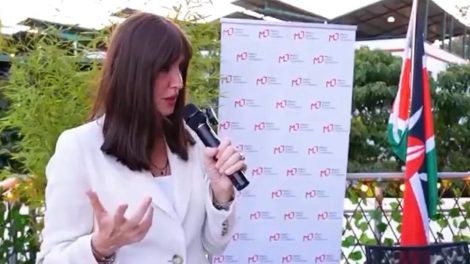Renewing education cooperation. As Decode39 anticipated, the Italian Ministry of Foreign Affairs and the Chinese Ministry of Science and Technology renewed their executive protocol for 2024-2025. The deal focuses on the launch of joint research projects, funded by both sides (Italy will contribute €1.4 million). The agreement was renewed on the occasion of the 12th China-Italy Science, Technology and Innovation Week, inaugurated on Tuesday in Beijing by Anna Maria Bernini, Italian Minister of Universities and Research, and Zhang Guangjun, Chinese Vice Minister of Science and Technology.
The details. The protocol envisions ten projects across five thematic areas (agriculture and food sciences; artificial intelligence applied to cultural heritage; physics and astrophysics; green energy; and biomedicine). Tuesday’s event was opened by a video message from Yin Hejun, China’s Minister of Science and Technology, who described Rome as an “important partner” in the field of innovation.
- “The Science Week accelerates the exchange of innovative resources, and we hope that it will give new impetus to scientific and technological cooperation” between China and Italy, the Minister said, stressing the “solid foundations” on which intergovernmental cooperation in the aforementioned sectors rests.
Zoom in: the strategic partnership. The protocol is part of the renewed strategic partnership between Italy and China, a platform for cooperation and diplomacy that is intended to compensate for the non-renewal of the Belt and Road Initiative Memorandum of Understanding (which in turn is highly likely but yet to be announced before the MoU self-renews in less than a month).
- Italy also aims to rebalance its economic, commercial, academic, scientific and research relations with China within the framework of the global strategic partnership established in 2004, which can systematise the ideas already shared by the two countries’ scientific communities in the field of innovation, explained Minister Bernini.
- The China-Italy Science, Technology and Innovation Week is part of the Global Strategic Partnership, which also gave rise to the bilateral intergovernmental committee that “defines the framework, scope and content” of relations, identifying the most innovation-related topics in supercomputing, AI, quantum tech, biotech, agritech, aerospace and sustainable mobility.
Navigation cooperation and risks. Italy expressly aims to make its dealings with China “increasingly transparent and based on the principles of mutual benefit,” noted Minister Bernini. Her mission followed an approach of “cooperation and awareness”, wrote Il Foglio citing ministerial sources, noting she had discussed it with US Ambassador Jack Markell.
- However, “there is still no talk of […] de-risking with China” in the areas of universities and research, “not even for structural reasons” such as the autonomy of Italian universities.
- There are 16 Confucius Institutes in Italy, but “there is a lack of debate on their presence or on the risks they might entail,” as remarked by the German research centre Merics.
- Another recent Merics report remarked that co-publications between China and Italy increased by 258% between 2013 and 2022.
- Moreover, Dutch consulting firm Datenna flagged Italy as being among those with the highest number of collaborations with the “Seven Sons of National Defence.”
- The Southeast University of Nanjing, marked as “high risk” by ASPI’s International Cyber Policy Center, is among the universities with collaborations in Italy. Its Chinese Communist Party chief, Zuo Wei, was in Italy to re-launch its presence in Italy’s scientific universities, as reported by Il Foglio.
- Xichun Zhang, head of the South China University of Technology (considered at “medium” risk), was also in Italy.
Watch out for Tsinghua U. The Italian delegation’s visit ended with a stop at Tsinghua University in Beijing, the alma mater of President Xi Jinping, which ASPI considers “very high risk due to its high level of defence research and alleged involvement in cyber-attacks.” The university has several cooperation programmes with the Italian academic world.
- Together with the University of Bergamo and the University of Naples Federico II, it promotes the China-Italy Laboratory on Advanced Manufacturing (Ci-Lam).
- It also has been a partner of the Polytechnic University of Turin for 15 years in the field of architecture and energy, with which it designed the Visitor Centre for the 2022 Winter Olympics and renewed the joint doctoral programme last April.
- Finally, it created the China-Italy Design Innovation Hub in Lombardy, in collaboration with the Polytechnic University of Milan, its first teaching and research hub in Europe.
Zoom in: the annual China-Italy Science, Technology and Innovation Week. The event bore witness to the post-pandemic resumption, said Riccardo Villari, president of the IDIS-Città della Scienza Foundation, as quoted by Agenzia Nova. According to him, there is a “harmony of views” between the two countries.
- The week’s programme includes joint workshops, conferences by Italian and Chinese experts, one-to-one meetings and visits to research laboratories and science parks.
- The thematic sessions of the two-day event cover various fields, ranging from technology applied to the Winter Olympics to smart manufacturing, from urban design to youth innovation through science parks.





